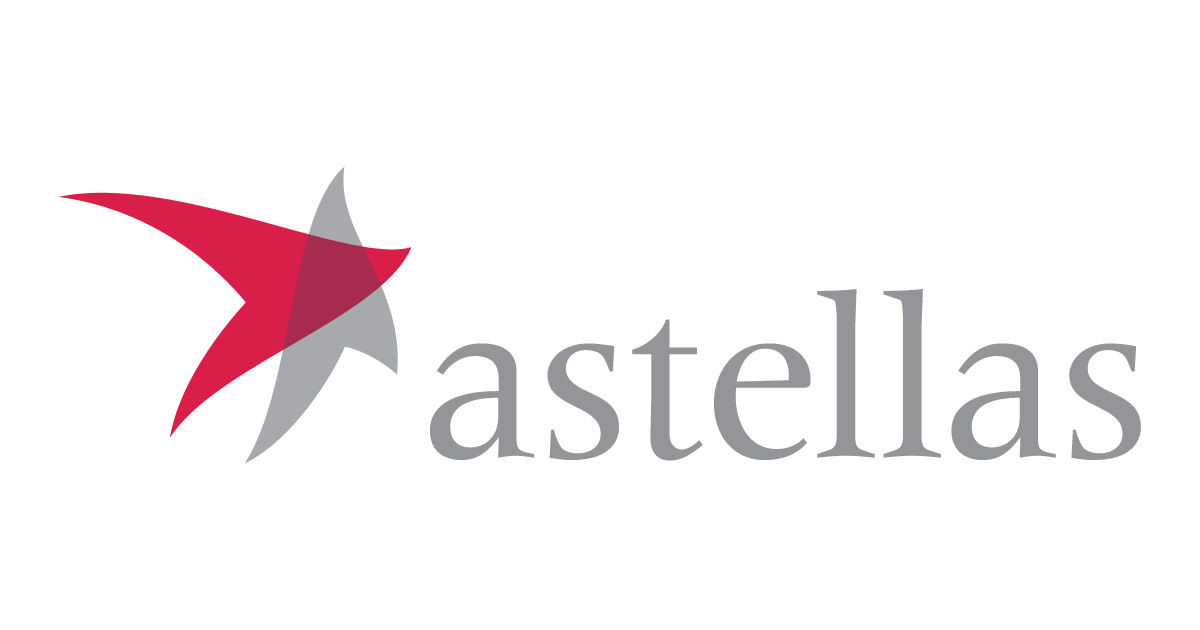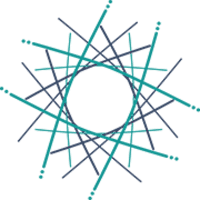预约演示
更新于:2025-05-24
FG-2216
更新于:2025-05-24
概要
基本信息
药物类型 小分子化药 |
别名 (((1-Chloro-4-hydroxyisoquinolin-3-yl)carbonyl)amino)acetic acid、1-Chloro-N- (hydroxyformylmethyl-4-hydroxyisoquinoline-3-carboxamide、1-Chloro-N-(hydroxyformylmethyl-4-hydroxyisoquinoline-3-carboxamide + [3] |
作用方式 抑制剂 |
作用机制 HIF-1α抑制剂(缺氧诱导因子-1α抑制剂)、PHD2抑制剂(egl-9 family hypoxia inducible factor 1 inhibitors) |
治疗领域 |
在研适应症- |
在研机构- |
最高研发阶段终止临床2期 |
首次获批日期- |
最高研发阶段(中国)- |
特殊审评- |
登录后查看时间轴
结构/序列
分子式C12H9ClN2O4 |
InChIKeyOUQVKRKGTAUJQA-UHFFFAOYSA-N |
CAS号223387-75-5 |
关联
1
项与 FG-2216 相关的临床试验NCT00456053
A Randomized Study of the Safety and Efficacy of FG-2216 in Subjects With Renal Anemia Not Requiring Dialysis and Not Receiving Recombinant Human Erythropoietin
The purpose of this study is to test the safety and efficacy of FG-2216 in the treatment of patients with renal anemia who are not receiving erythropoietin and who are not on dialysis.
开始日期2005-12-01 |
申办/合作机构 |
100 项与 FG-2216 相关的临床结果
登录后查看更多信息
100 项与 FG-2216 相关的转化医学
登录后查看更多信息
100 项与 FG-2216 相关的专利(医药)
登录后查看更多信息
70
项与 FG-2216 相关的文献(医药)2024-08-01·BIOORGANIC & MEDICINAL CHEMISTRY LETTERS
Discovery of DS44470011: An oral hypoxia-inducible factor prolyl hydroxylase inhibitor for the treatment of renal anemia
Article
作者: Tsuji, Takashi ; Sasaki, Koji ; Ishii, Ken ; Tanaka, Naoki ; Takano, Rieko ; Niitsu, Yoichi ; Kuribayashi, Takeshi ; Ito, Shuichiro ; Baba, Daichi ; Fukuda, Takeshi ; Hashimoto, Masami
Inhibition of the hypoxia-inducible factor prolyl hydroxylase (HIF-PHD) represents a promising strategy for discovering next-generation treatments for renal anemia. We identified a pyrimidine core with HIF-PHD inhibitory activity based on scaffold hopping of FG-2216 using crystal structures of HIF-PHD2 in complex with compound. By optimizing the substituents at the 2- and 6- positions of the pyrimidine core, we discovered DS44470011, which improves the effectiveness of erythropoietin (EPO) release in cells. Oral administration of DS44470011 to cynomolgus monkeys increased plasma EPO levels.
2024-06-13·JOURNAL OF MEDICINAL CHEMISTRY
Nonclassical Zwitterions as a Design Principle to Reduce Lipophilicity without Impacting Permeability
Article
作者: Strang, Ross ; Dittrich, Birger ; Rodde, Stephane ; Möbitz, Henrik
The ionization of bioactive molecules impacts many ADME-relevant physicochemical properties, in particular, solubility, lipophilicity, and permeability. Ampholytes contain both acidic and basic groups and are distinguished as ordinary ampholytes and zwitterions. An influential review states that zwitterions only exist if the acidic pKa is significantly lower than the basic pKa. Through concordance of measured and calculated pKa and log P, we show that the zwitterionic behavior of several marketed drugs and natural products occurs despite a low or negative ΔpKa. These nonclassical zwitterions are characterized by a weak acidic and basic pKa and conjugation through an extended aromatic system, often including pseudorings via intramolecular hydrogen bonds. In contrast to most classical zwitterions, nonclassical zwitterions can exhibit excellent permeability. As permeability and lipophilicity are typically correlated, the combination of low lipophilicity and high permeability makes nonclassical zwitterions an attractive design principle in medicinal chemistry.
2024-03-28·Journal of medicinal chemistry1区 · 医学
Focused Screening Identifies Different Sensitivities of Human TET Oxygenases to the Oncometabolite 2-Hydroxyglutarate
1区 · 医学
Article
作者: Bhushan, Bhaskar ; Kawamura, Akane ; Saraç, Hilal ; Szykowska, Aleksandra ; Salah, Eidarus ; Tumber, Anthony ; Roper, Grace ; Belle, Roman ; Brown, Tom ; Burgess-Brown, Nicola ; Kriaucionis, Skirmantas ; Schofield, Christopher J.
Ten-eleven translocation enzymes (TETs) are Fe(II)/2-oxoglutarate (2OG) oxygenases that catalyze the sequential oxidation of 5-methylcytosine to 5-hydroxymethylcytosine, 5-formylcytosine, and 5-carboxylcytosine in eukaryotic DNA. Despite their roles in epigenetic regulation, there is a lack of reported TET inhibitors. The extent to which 2OG oxygenase inhibitors, including clinically used inhibitors and oncometabolites, modulate DNA modifications via TETs has been unclear. Here, we report studies on human TET1-3 inhibition by a set of 2OG oxygenase-focused inhibitors, employing both enzyme-based and cellular assays. Most inhibitors manifested similar potencies for TET1-3 and caused increases in cellular 5hmC levels. (R)-2-Hydroxyglutarate, an oncometabolite elevated in isocitrate dehydrogenase mutant cancer cells, showed different degrees of inhibition, with TET1 being less potently inhibited than TET3 and TET2, potentially reflecting the proposed role of TET2 mutations in tumorigenesis. The results highlight the tractability of TETs as drug targets and provide starting points for selective inhibitor design.
2
项与 FG-2216 相关的新闻(医药)2024-07-11
·药时代
罗沙司他,一款源自美国的国产1类创新药,由珐博进(中国)医药技术开发有限公司和阿斯利康公司在中国合作完成临床试验并于2018年12月取得上市批准,2019年7月实现商业上市,2021年销售额突破10亿元人民币,2023年突破20亿元人民币,自2020年起就确立了作为肾性贫血治疗领域销售额第一品牌的地位。作为一款非肿瘤领域的化学药,如此亮眼的业绩,可谓空前,赞一声“神药”并不为过。那么,是什么魔力催生了这款“神药”呢?让我们追根溯源,探究它的前世今生。
01
“诺奖”机制,师出名门
罗沙司他是一款首创作用机制(first-in-class)创新药,其作用机制创新点在于低氧诱导因子-脯氨酰羟化酶抑制剂。从事后诸葛的视角看,发现罗沙司他作用机制的三名科学家获得了2019年诺贝尔生理学或医学奖,其中一名获奖科学家威廉·凯林长期担任美国珐博进公司的科学顾问委员会主任。有了“诺奖”的背书,罗沙司他作为一款首创作用机制创新药,可谓根红苗正,名副其实。
美国珐博进公司从上世纪90年代后期就开发了较为成熟的脯氨酰羟化酶抑制剂(PHI)平台技术,只是当时他们的研发方向是抗组织纤维化,而不是抗贫血领域。美国珐博进公司和威廉·凯林在2001年建立了联系,后来机缘巧合之下,美国珐博进公司内部研发人员通过实验观察到他们的试验药物可能具有治疗贫血的潜力,于是把研发方向调整为抗贫血领域,很快找到了一些候选化合物,随后找到了具有理想开发特征的首选和二选药物,后来经过持续开发和优化,逐渐演化成研发代号为FG-4592的化合物,即罗沙司他。在2006年和2013年,美国珐博进公司用罗沙司他先后与安斯泰来公司和阿斯利康公司公司完成了两笔非常成功的授权交易。
2006年4月28日,美国珐博进公司宣布与安斯泰来公司达成独占许可协议,授权安斯泰来公司在欧洲、独联体国家、中东和南非开发和销售当时已开始人体试验的低氧诱导因子-脯氨酰羟化酶抑制剂(FG-2216 and FG-4592),用于治疗贫血。根据该协议,安斯泰来需支付3亿美元首付款,根据药品开发进度,另需4.65亿美元的里程碑付款,在2010年之后的10-15年期间,如果罗沙司他在授权区域内的销售额达到预期,美国珐博进公司得到超过20亿美元的收入。此外,安斯泰来还将购买价值5000万美元的美国珐博进公司股票。
2013年7月31日,美国珐博进公司宣布与阿斯利康公司达成关于FG-4592合作开发和商业化的战略协议,授权区域包括美国、中国和安斯泰来授权区域之外的其他区域。阿斯利康将向美国珐博进公司支付3.5亿美元首付款,根据药品开发进度,另需4.65亿美元的里程碑付款。美国珐博进公司还有权按销售额收取不低于20%的许可费。在中国市场上,两家公司将合作开展商业化活动,珐博进公司负责临床试验、注册事务、生产和医学事务,阿斯利康负责推广活动和商业分销。
02
高瞻远瞩,登陆中国
在罗沙司他之前,几乎所有国外制药企业都习惯将创新药物在美国等发达国家或地区首先上市,然后以进口药物身份申请进入中国市场。对于罗沙司他这款创新药而言,美国珐博进公司选择了一条不同的道路。珐博进公司约30%的员工来自中国,其中绝大部分都是研发人员,包括对罗沙司他的研发起到关键作用的核心研发人员。创始人及总裁Tom Neff先生凭着敏锐的商业洞察力以及具有前瞻性的国际化视野,对中国有着持续关注和深刻理解,他认为随着中国的经济水平的提高,人民对健康生活和医疗服务水平的要求也会提高。同时,中国慢性肾脏病贫血患者数量很大,贫血治疗达标率普遍比较低,罗沙司他将会是中国临床急需的药物。罗沙司他这样的创新药物,有望在中国医药行业获得一席之地。
在此背景下,美国珐博进公司于2010年取得了在中国开展罗沙司他的临床试验的批件,争取在中国和全球同步上市罗沙司他。
03
关键一跃,鲤鱼化龙
罗沙司他在开展I期、II期临床试验时,还是个进口药,作为申请人的美国珐博进公司,也还没在中国设立子公司。如果按这个路径走下去,罗沙司他也只是众多进口创新药中的一员,但是峰回路转,2011年底,美国珐博进公司投资设立了珐博进(中国)医药技术开发有限公司,作为在中国落地罗沙司他项目的主体。罗沙司他到III期临床试验时,已经改头换面,取得了国产1.1类新药(即化学药品注册分类改革后的1类创新药)的身份,从此走上了成为“史上首次中国首批的首创新药(for the first time in history China becomes the first approval country of a first-in-class drug)”的进击之路。
04
顺应医药创新大势
创“三首”历史
新时代的医药创新改革在2015年拉开大幕,罗沙司他也迎来了“换装”之后的美好时光,III期临床试验在2015年8月份获批,甚至在2016和2017年两次获得国家“重大新药创制”科技重大专项支持,终于在2018年12月获批上市,真的成了“史上首次中国首批的首创新药”。由于罗沙司他只是在中国完成了临床转化,算不上是在中国本土研发的原创成果,这个创纪录的成绩虽然成色略有不足,但从药品注册历史看,在罗沙司他之前,中国本土制药企业确实没有上市过首创新药,跟随型创新的“me-too”产品已经是当时历史条件下能拿出的最好创新成果,最能代表原始创新成果的首创新药全部来自跨国制药企业。
05
商业上市之路
被耽误的半年
根据国家药监局官网公告,罗沙司他是2018年12月18日获批上市的,但是蹊跷的是,直到8个月之后,也就是2019年7月中旬,罗沙司他才开始从工厂发货,实现正式的商业上市。应该说这是一件不太寻常的事情,一般来说,时间就是金钱,药企会尽最大能力在产品获批上市之后以最快速度开始销售,一方面可以尽早惠及患者,另一方面要企业也能尽快取得收入。以现在的标准看,在药品获批上市后两周之内实现正式商业上市,已经是基本操作。即使在2019年的市场环境下,药企也普遍能在产品获批上市后的一两个月之内实现正式商业上市。而罗沙司他竟然在获批上市之后,还要耗时8个月,才把产品送到患者手上。在卷到飞起的中国市场上,这样的速度,实在是慢得有点不可思议。
06
临床数据疑云
梦断美国市场
罗沙司他在中国顺利获批上市,并且在商业化道路上高歌猛进,在美国却是命途多舛,甚至最终迎来了折戟沉沙的结局。
早在2019年5月10日,阿斯利康公司和美国珐博进公司发布公告称,对罗沙司他三期临床试验安全性数据进行的回顾性汇总分析表明,临床试验取得了积极结果。但是蹊跷的是,这个“好消息”出来之后,美国珐博进公司的股票大幅跳水了20%多。原因在于公告中的一些限制性陈述给投资者带来了困惑,例如“我们认为在风险问题上没有临床意义上的差异”,这可能被解释为罗沙司他在安全性终点的数据表现不如阿法依泊汀。在与投资者沟通的电话会议上,美国珐博进公司当时的CEO托马斯·聂夫(Thomas Neff)说, “非劣效性”是统计学上评估两个药物是否同等安全的严格方法,公司和FDA尚未就达成一致意见。这个说法引人遐想,即未来的分析结果可能发现罗沙司他可能并没有那么安全。
后来,美国珐博进公司当时的CEO托马斯·聂夫(Thomas Neff)在2019年8月突然去世,由当时的董事会主席担任代理CEO。尽管经历了一些波折,美国珐博进公司仍然照常推进了罗沙司他在美国的新药上市申请(NDA)。
2019年12月23日,美国珐博进公司公告称已向FDA提交了罗沙司他的新药上市申请。
2020年2月11日,美国珐博进公司公告称FDA已受理罗沙司他的新药上市申请,并将《处方药使用者费用法案》的日期(PDUFA日期,相当于药品的批准上市日期)定为2020年12月20日。
2020年12月18日,罗沙司他的命运迎来了第一次转折,FDA出人意料地要求进一步澄清临床数据分析,以完成对罗沙司他新药上市申请的审查,并将新的PDUFA日期确定为2021年3月20日。
然而,2021年3月1日,FDA进一步要求召开专家咨询委员会评审罗沙司他的新药上市申请,罗沙司他再受重击。
更惊人的是,在2021年4月6日,珐博进主动发表声明,自爆“人为修改了罗沙司他新增安全数据的标准,以使数据显得比真实情况更好看一些”。这一行为,被外界解读为“篡改”或“操纵”了临床数据。在后续的FDA内部审评中,又发现了更多安全性问题,包括增加死亡风险、血栓和严重感染。这些负面消息,再次给罗沙司他的上市蒙上了阴影。
尽管在2021年6月25日,欧盟发布了关于批准罗沙司他新药上市申请的积极意见。可惜这份好运并未延伸至美国。
2021年7月15日,FDA心血管与肾脏药物咨询委员会针对罗沙司他的上市申请召开表决会议。在会议上,委员会进行了反对罗沙司他上市申请的投票,以13票赞成、2票反对的结果告终,罗沙司他在美国上市的希望变得特别渺茫。
2021年8月11日,第二只靴子落地,根据专家咨询委员会的建议,FDA出于安全考虑拒绝了罗沙司他,同时向美国珐博进公司出具了完整回复函,要求其再做一项安全性的临床试验, 才会重新考虑审查罗沙司他的新药上市申请。
罗沙司他的新药上市申请被FDA拒绝之后,又经历了骨髓增生异常综合征(MDS)患者贫血三期临床试验的失败。终于,2024年2月26日,阿斯利康公司宣布向美国珐博进公司退还罗沙司他在美国和其他区域的商业化权利,仅保留已获批上市的中国和韩国市场的权益。
07
三进医保目录
中国市场一枝独秀
在2019年度,虽然罗沙司他的正式商业上市被耽误了半年之久,半年的销售数据也乏善可陈,但是其亮点在于取得了2019年度医保目录谈判的成功,为未来两年的销量打下了坚实的基础。果不其然,罗沙司他在2020年就迅速上量,实现了接近5亿元的销售额。2021年则是更进一步,销售额达到了12亿元,并且在年底的医保谈判中成功续约。在医保目录续约谈判价格接近腰斩的情况下,罗沙司他仍然在2022年实现了14亿元的销售额。在2023年,罗沙司他在中国市场上继续高歌猛进,销售额达到20亿元,在年底的医保续约谈判中也是再传捷报,不仅成功续约,而且维持了比较稳定的价格。
相比起来,安斯泰来公司手握罗沙司他日本和欧盟以及独联体国家、中东和南非几大市场,而且没有遭遇FDA拒批这样的“黑天鹅”事件,但是罗沙司他在日本和欧盟市场上的表现却是乏善可陈。根据安斯泰来公司的年报,罗沙司他在2020、2021和2022年的年销售额分别仅有11亿日元、26亿日元和32亿日元。或许是由于罗沙司他市场表现远不及预期,安斯泰来公司的新CEO上任之后,在2023年4月对罗沙司他这项资产进行了减值处理,损失额约为3.4亿美元。
08
临近“专利悬崖”
形势急转直下
彩云易散琉璃脆,美好的事物好像总是逃不了脆弱的宿命。罗沙司他也是如此,罗沙司他之所以能在中国市场上大放异彩,完全得益于其独家产品的垄断地位,这种垄断地位又完全建立在短暂且脆弱的药品专利权之上。
罗沙司他药品专利的重中之重是其化合物专利,这是真正能维持专利壁垒和市场独占地位的核心专利。罗沙司他的化合物专利有三项,一项登记在珐博进(中国)公司名下,其余两项登记在美国珐博进公司名下,这三项化合物专利的到期日都是2024年6月4日,目前已经完全失效。除化合物专利外,还有晶型专利和制剂专利,在制药行业,这两类专利一般被认为比较容易被仿制药企业绕过,不容易有效构成专利壁垒。更何况,罗沙司他的三项晶型专利都已经在2022年8月份被宣告无效了。在2023年9月份,珐博进(中国)又获得了一项罗沙司他药物组合物的专利授权,但是这项新专利维护其专利壁垒的效果还有待观察。
实际上,从2023年5月22日起,罗沙司他化合物专利专利保护期还剩一年左右,国家药监局药品审评中心已经开始正式受理罗沙司他仿制药上市申请。截至2024年6月底,已有24家仿制药企业向国家药监局药品审评中心提交了罗沙司他仿制药上市申请并获得受理,审评审批程序也在正常推进中。其中,石药集团的罗沙司他胶囊仿制药已于2024年7月5日获批上市。
跟所有创新药一样,一旦罗沙司他的药品专利权到期,仿制药就会获批上市,以极低的价格抢占市场份额,在仿制药数量达到3家以上之后,就会触发带量采购,创新药要跟仿制药展开更加激烈的拼杀,在在中国市场上的激烈竞争中,罗沙司他有可能前景黯淡,风光不再。2024年有望达成的25-30亿销售额,也极大可能会成为这款“神药”谢幕退场前的绝唱。
09
尾声
罗沙司他从2010年起在中国启动一期临床试验,至今十多年经历了中国医药创新之路的酸甜苦辣,再叠加其在海外市场上跌宕起伏的命运,走上过巅峰,也跌落过谷底。其整体表现值得称道,也有令人扼腕叹息之处。这也是中国医药创新历程中的一朵浪花,折射着医药创新历程中的悲欢。
封面图来源:pixabay
版权声明/免责声明
本文为原创文章。
本文仅作信息交流之目的,不提供任何商用、医用、投资用建议。
文中图片、视频、字体、音乐等素材或为药时代购买的授权正版作品,或来自微信公共图片库,或取自公司官网/网络,部分素材根据CC0协议使用,版权归拥有者,药时代尽力注明来源。
如有任何问题,请与我们联系。
衷心感谢!
药时代官方网站:www.drugtimes.cn
联系方式:
电话:13651980212
微信:27674131
邮箱:contact@drugtimes.cn
新药出海如何做到价值最大化?精鼎医药前FDA、EMA审评专家“剧透”最佳方案
股价暴涨75%!礼来32亿美元加码自免领域
一款CAR-T 换 18%股份,信达生物的取舍
点击这里,发现价值信息!
引进/卖出上市批准
2006-05-04
Japanese drugmaker Astellas has licensed exclusive rights to a series of anaemia drugs from FibroGen, in a deal that could eventually bring in up to $2 billion to the US firm in the coming years.
Astellas had previously licensed Japanese rights to the drugs, known as hypoxia-inducible factor prolyl hydroxylase inhibitors, but in the latest agreement has extended its rights to include Europe, the Commonwealth of Independent States, the Middle East and South Africa.
The deal includes FG-2216 and FG-4592, which are currently in human clinical trials, with FibroGen retaining rights to compounds in the rest of the world.
Under the terms of the agreement, Astellas will pay a licensing fee of $300 million upon signing, milestones totaling $465 million and share in the costs of a transatlantic development programme and patent support. If all forecast sales targets are achieved, FibroGen could receive in excess of $2 billion during the 10 to 15 years after 2010. In addition, Astellas will purchase $50 million worth of shares in the US biotechnology firm.
The oral compounds inhibit the enzyme that degrades erythropoietin, and could be a more patient-friendly therapy option for anaemia, which is currently treated with injectable recombinant forms of EPO such as Amgen’s Epogen (epoetin alfa) and Aranesp (darbepoetin alfa), as well as Roche’s NeoRecormon (epoetin beta).
Together these drugs account for a multibillion dollar market worldwide. For example, in Europe, sales of EPO products for anaemia of chronic kidney disease and chemotherapy-induced anaemia total approximately $3 billion a year.
Astellas noted that oral treatments to stimulate red blood cell production could address larger, multi-million patient market opportunities currently not penetrated by EPO products, including chronic kidney disease in patients not yet on dialysis and anaemias caused by cancer, congestive heart failure, advancing age and chronic disease.
Sales potential
Astellas said it plans to start marketing the agents in 2011-2012, and predicts that the drugs have an annual sales potential in Europe of around 50 billion yen (roughly $450 million), which could double at peak. A launch in Japan should occur a little later, and Astellas said the market potential there is in the region of 30-50 billion yen.
100 项与 FG-2216 相关的药物交易
登录后查看更多信息
外链
| KEGG | Wiki | ATC | Drug Bank |
|---|---|---|---|
| - | - | - |
研发状态
10 条进展最快的记录, 后查看更多信息
登录
| 适应症 | 最高研发状态 | 国家/地区 | 公司 | 日期 |
|---|---|---|---|---|
| 肾性贫血 | 临床2期 | 美国 | 2005-12-01 | |
| 贫血 | 临床2期 | 美国 | - | |
| 贫血 | 临床2期 | 欧洲 | - |
登录后查看更多信息
临床结果
临床结果
适应症
分期
评价
查看全部结果
| 研究 | 分期 | 人群特征 | 评价人数 | 分组 | 结果 | 评价 | 发布日期 |
|---|
No Data | |||||||
登录后查看更多信息
转化医学
使用我们的转化医学数据加速您的研究。
登录
或

药物交易
使用我们的药物交易数据加速您的研究。
登录
或

核心专利
使用我们的核心专利数据促进您的研究。
登录
或

临床分析
紧跟全球注册中心的最新临床试验。
登录
或

批准
利用最新的监管批准信息加速您的研究。
登录
或

特殊审评
只需点击几下即可了解关键药物信息。
登录
或

生物医药百科问答
全新生物医药AI Agent 覆盖科研全链路,让突破性发现快人一步
立即开始免费试用!
智慧芽新药情报库是智慧芽专为生命科学人士构建的基于AI的创新药情报平台,助您全方位提升您的研发与决策效率。
立即开始数据试用!
智慧芽新药库数据也通过智慧芽数据服务平台,以API或者数据包形式对外开放,助您更加充分利用智慧芽新药情报信息。
生物序列数据库
生物药研发创新
免费使用
化学结构数据库
小分子化药研发创新
免费使用

